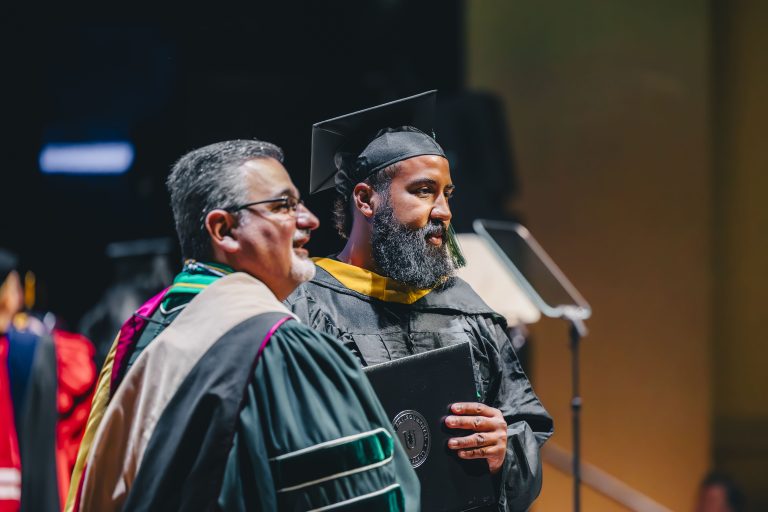
Greetings!
During Black History Month, I would like to bring to the forefront the contributions of several Black environmentalists who have made an impact not only with their work, but also through their representation in the environmental field. There continues to be a significant lack of representation of minority populations in environmental and sustainability fields, even though environmental issues such as pollution and food scarcity have a particularly heavy impact on urban areas. It is my hope that as Unity College continues the work of making our environmental and sustainability science education accessible to an increasingly diverse student population, that we can help to address the lack of representation in the green jobs economy.
As an alum, you know the Unity College mission is more relevant and critical than ever before, and impacts all populations. Our curriculum, rooted in environmental and sustainability science, is designed to prepare graduates to leave Unity College ready to tackle the most pressing environmental issues of our time. One of the most remarkable realizations I had shortly after I arrived at Unity College over nine years ago was that regardless of a student’s background, their beliefs, or where they came from, all Unity College students share a common passion for the environment and sustainability. That same passion is shared with the environmentalists celebrated below:

Lisa Jackson was the first African American (and one of only a few women) to serve as the federal EPA Administrator. Appointed in 2009, she made it a priority to focus on vulnerable groups – including children, the elderly, and low-income communities – that are particularly susceptible to environmental and health threats. Jackson became interested in environmental matters following the national and international coverage of the Love Canal Disaster in the mid-1970. She led the EPA to expand its commitment to engaging with and listening to all stakeholders in the decision-making process. After leaving the EPA, in May 2013, Jackson joined Apple as their environmental director.

Captain Charles Young was born into slavery in Kentucky on March 12, 1864. He became the third African-American graduate of the United States Military Academy, the first black US National Park Superintendent, first black military attaché, first black man to achieve the rank of colonel in the US Army, and highest-ranking black officer in the regular army until his death in 1922.
As the Superintendent for the Sequoia and General Grant national parks, Young ensured the preservation of the great wilderness, and commanded a group of park rangers that became known as the “Buffalo Soldiers” keeping the park free from poachers and ranchers whose grazing sheep destroyed the parks’ natural habitats. Young also managed road construction to allow more visitors to enjoy it completing a wagon road to the Giant Forest, home of the world’s largest trees, and a road to the base of the famous Moro Rock.

Rue Mapp is the Founder and CEO of Outdoor Afro, a national not-for-profit organization with offices in Oakland, CA, and Washington, D.C. Rue oversees a carefully selected and trained national volunteer leadership team of nearly 90 men and women who represent 42 cities around the US, and shares opportunities to build a broader community and leadership in nature. Her important work has generated widespread national recognition and support. Since Outdoor Afro’s inception in 2009 as a blog, Rue has captured the attention and support of millions through a multimedia approach that is grounded in personal connections and community organizing. From its grassroots beginning, Outdoor Afro now enjoys national sponsorship and is recognized by major organizations for its role in addressing the ongoing need for greater diversity in the outdoors.

Dr. Warren Washington became one of the first developers of groundbreaking atmospheric computer models in collaboration with Akira Kasahara when he joined the National Center for Atmospheric Research (NCAR) in the early 1960s. These models, which use fundamental laws of physics to predict future states of the atmosphere, have helped scientists understand climate change. As his research developed, Washington worked to incorporate the oceans and sea ice into climate models. Such models now include components that depict surface hydrology and vegetation as well as the atmosphere, oceans, and sea ice. An Introduction to Three-Dimensional Climate Modeling, written by Washington and Claire Parkinson in 1986 and updated in 2005, is a standard reference in the field.

Will Allen is an urban farmer who is transforming the cultivation, production, and delivery of healthy foods to underserved, urban populations. In 1995, while assisting neighborhood children with a gardening project, Allen began developing the farming methods and educational programs that are now the hallmark of the non-profit organization Growing Power, which he directs and co-founded.
Guiding his efforts is the recognition that the unhealthy diets of low-income, urban populations, and such related health problems as obesity and diabetes, largely are attributable to limited access to safe and affordable fresh fruits and vegetables. Rather than embracing the “back to the land” approach promoted by many within the sustainable agriculture movement, Allen’s holistic farming model incorporates both cultivating foodstuffs and designing food distribution networks in an urban setting.
When I consider our mission, the contributions of Unity College alumni in these fields, and the Unity student today and of the future, I am overwhelmed with excitement at what the future holds as Unity College continues to reach new audiences and graduate environmental leaders for generations to come.
As always, please contact us at development@unity.edu, with any questions or comments you may have.
In Unity,
Dr. Melik Peter Khoury
President



